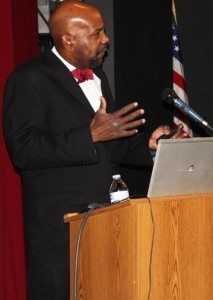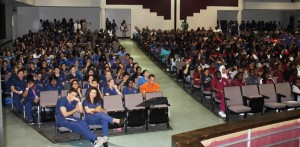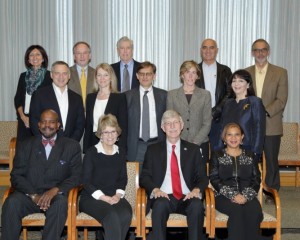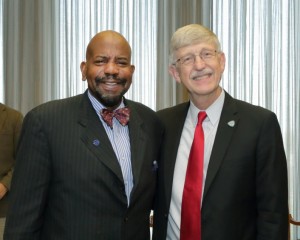By Cato T. Laurencin, M.D., Ph.D.
On April 23rd, the Urban League of Greater Hartford Young Professionals in Partnership with professionals from the Connecticut Institute for Clinical and Translational Science (CICATS) at UConn, Wesleyan University, Southern New England Association of Technical Professionals, and Capital Community College hosted the 1st Annual Science, Technology, Engineering, Arts, and Mathematical (STEAM) Career Expo in downtown Hartford, CT. The STEAM Expo gave local students the opportunity to learn real world applications of math, science, and engineering and encourage students to pursue a career in the STEAM fields. The event was also designed to encourage students to enter the pipeline and eventually pursue careers in these fields, creating a diverse workforce of future leaders in STEAM.
Dr. Linda Barry, Assistant Director of CICATS, and several members from CICATS and the Institute for Regenerative Engineering (IRE) participated in the Career Expo. During the event, they shared their real research and clinical experiences with young people in Hartford. One of our missions is to ensure that young people in our community have mentors and to encourage them to pursue STEAM for their careers. IRE provides high-school and college students with numerous research opportunities in our laboratories. Each summer, we recruit students who are interested in medicine, dental medicine, engineering or biomedical research to participate in our research programs.
Learn more about our training and mentoring programs.





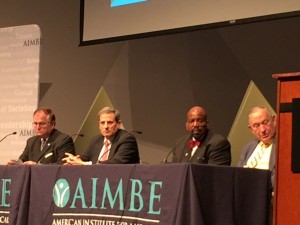 On April 3rd and 4th, the American Institute for Medical and Biological Engineering (AIMBE) hosted its annual 2-day meeting in Washington, DC. This event represents one of the premiere conferences where the leaders in medical and biological engineering from academia, industry, and government gather for cutting-edge programming, social events, and a chance to welcome the newest AIMBE fellows. This year, AIMBE highlighted the Distinguished Leadership Panel featuring the country’s leading experts in the field to discuss AIMBE’s next 25 years. I was honored to be on the panel with a number of distinguished leaders in the field, including Dr. Robert Nerem, Dr. Nicholas Peppas, and Dr. Kenneth Lutchen. I spoke about the organization’s need to be leaders in diversity, advocacy, and the promotion of next-generation science. The event was incredibly rewarding.
On April 3rd and 4th, the American Institute for Medical and Biological Engineering (AIMBE) hosted its annual 2-day meeting in Washington, DC. This event represents one of the premiere conferences where the leaders in medical and biological engineering from academia, industry, and government gather for cutting-edge programming, social events, and a chance to welcome the newest AIMBE fellows. This year, AIMBE highlighted the Distinguished Leadership Panel featuring the country’s leading experts in the field to discuss AIMBE’s next 25 years. I was honored to be on the panel with a number of distinguished leaders in the field, including Dr. Robert Nerem, Dr. Nicholas Peppas, and Dr. Kenneth Lutchen. I spoke about the organization’s need to be leaders in diversity, advocacy, and the promotion of next-generation science. The event was incredibly rewarding.


